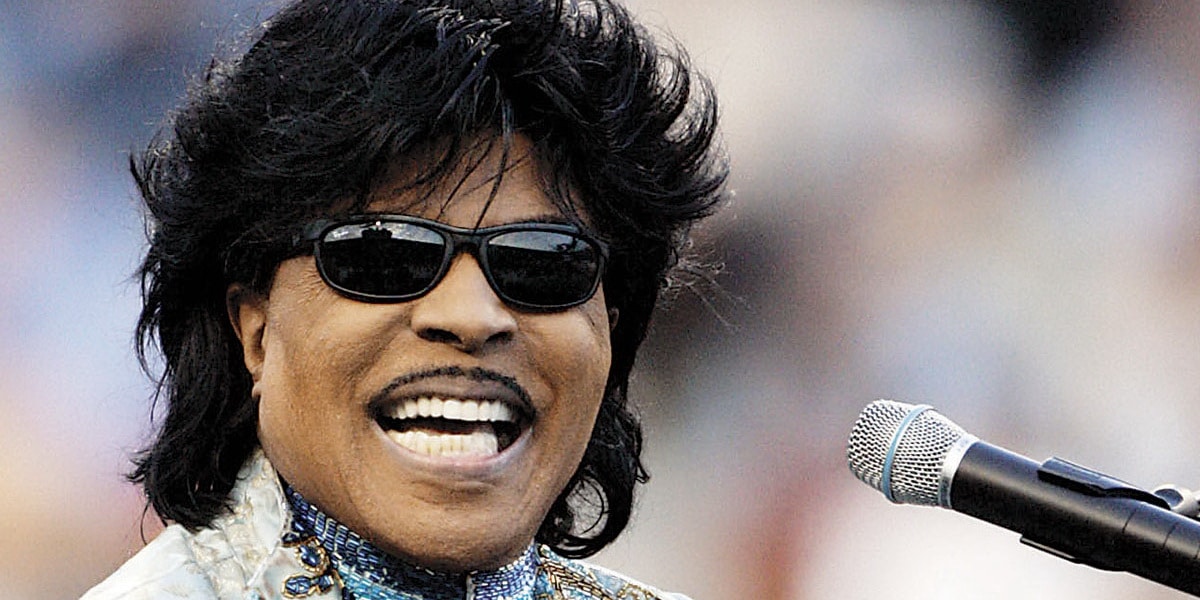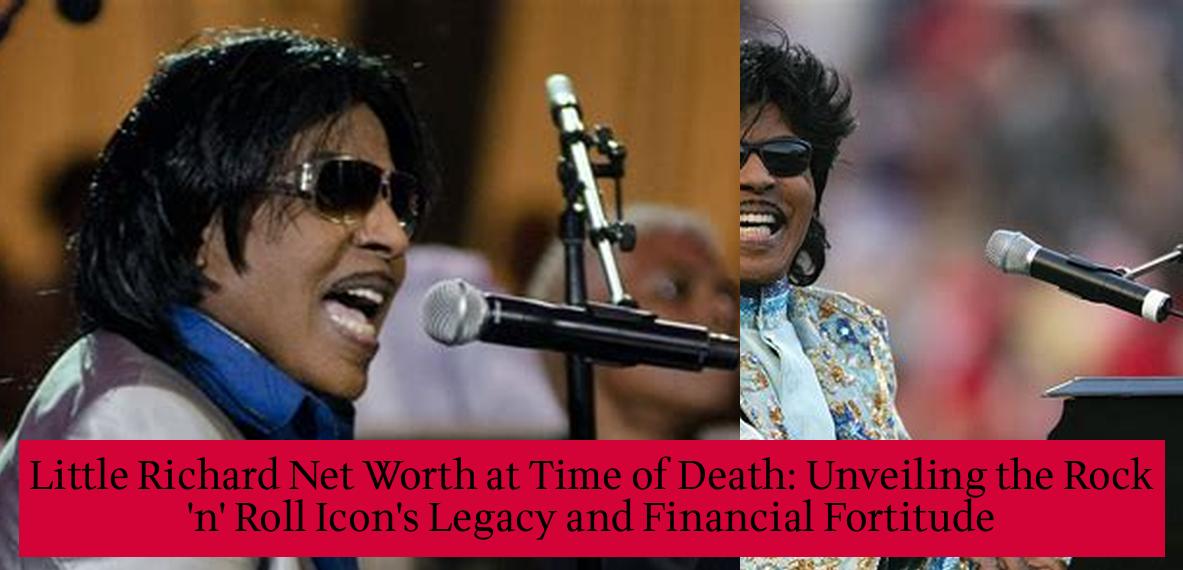Little Richard Net Worth: How Much Did The Rock Legend Have?
Did the "Architect of Rock and Roll" leave behind a fortune worthy of his iconic status? Little Richard, the flamboyant and revolutionary musician who reshaped the landscape of popular music, was estimated to be worth approximately $40 million at the time of his passing in May 2020. This article delves into the financial journey of Richard Wayne Penniman, exploring the sources of his wealth, the moments that defined his financial legacy, and the impact of his decisions on his overall net worth.
The world, and the music industry in particular, has changed dramatically since Richard Wayne Penniman, known to the world as Little Richard, was born on December 5, 1932, in Macon, Georgia. His influence on popular culture remains undeniable, making his financial story a subject of enduring interest. His passing in 2020 brought renewed attention to his life, his music, and the fortune he amassed during his career. While the precise distribution of his estate remains private, understanding the origins and management of his wealth provides insight into the man behind the music.
| Category | Details |
|---|---|
| Full Name | Richard Wayne Penniman |
| Born | December 5, 1932, Macon, Georgia, USA |
| Died | May 9, 2020 (aged 87) |
| Occupation | Singer, Songwriter, Pianist |
| Known For | Pioneering Rock and Roll Music, Hits like "Tutti Frutti," "Long Tall Sally," and "Good Golly, Miss Molly" |
| Net Worth at Death (Estimated) | $40 Million |
| Key Career Moments |
|
| Financial Challenges |
|
| Influences | Gospel Music, Rhythm and Blues |
| Legacy |
|
| Reference | Britannica - Little Richard Biography |
The core of Little Richard's wealth stemmed from his immensely successful music career. From the mid-1950s onward, his high-energy performances and groundbreaking music propelled him to stardom. Hits like "Tutti Frutti," released in 1955, were instant classics, charting across the nation and introducing a new, frenetic style of music to a wide audience. His energetic stage presence, flamboyant persona, and signature piano playing made him a must-see act, translating into substantial income from record sales and concert tours. "Long Tall Sally" and "Good Golly, Miss Molly" further solidified his place in music history and contributed significantly to his financial portfolio. The ability to perform for many years, he had accumulated a large fortune, as he kept on touring and performing.
However, the narrative of Little Richard's financial life isn't without its complexities. One of the most often-cited examples of potential financial setbacks was his decision to sell the rights to "Tutti Frutti" early in his career. The song, a cornerstone of rock and roll, was sold to Specialty Records for a meager sum of $50 plus a half-cent royalty per record sold. This decision, although typical for the time and a product of the music industry practices of the era, meant that Little Richard missed out on a fortune. This situation, the artist noted on his personal website, was one of the reasons that the artist was prevented from accessing many millions of dollars.
Throughout his career, Little Richards income fluctuated. During periods of high demand, he earned substantial income from performing and recording. However, the music industry, particularly during the mid-20th century, was often characterized by complex contracts, royalty disputes, and a lack of financial sophistication on the part of some artists. Its worth mentioning that he would often sue for royalty rights, meaning, he had an awareness of what was happening with his songs and his music. Despite these factors, Little Richard amassed a substantial net worth.
Beyond the specifics of record sales and royalties, Little Richard's career was marked by a series of periods, in which he was temporarily involved in religious devotion and ministry, which would naturally lead him to step away from secular music. It is understandable that his income would be affected, however, this was also a crucial part of his personal life. Little Richard's religious convictions often led him to focus on gospel music, a genre he excelled in. This diversification, though often associated with artistic expression, also impacted his financial trajectory.
The fluctuations in Little Richard's financial situation are not unique in the music industry. Many artists of his era faced similar challenges, including difficulties collecting royalties, predatory contracts, and the complexities of managing finances. It is also important to remember that the world was very different in the 1930s, when he was born, and in the subsequent decades as he rose to prominence. The business practices and the opportunities available to him were also limited compared to modern times.
The legacy of Little Richard is undeniable. He was inducted into the Rock and Roll Hall of Fame in 1986, and received a Grammy Lifetime Achievement Award in 1993. These honors recognize the enduring impact of his music on the evolution of popular culture. He was considered an influential figure in popular music and culture for seven decades. His influence can be felt in generations of musicians.
While estimates place his net worth at $40 million at the time of his death, this figure reflects the complex interplay of his successes and the challenges he faced. Despite what is considered to have been a poor business decision early in his career, and the various periods in his life where he focused on gospel music, he still managed to amass a significant fortune through the power of his talent and the longevity of his career. Little Richards wealth at the time of his death remains a testament to his talent, hard work, and his lasting impact on the world.
In assessing Little Richard's financial story, it's crucial to recognize the evolution of the music industry and the business practices of the time. Had circumstances been different, or had he possessed greater control over his financial affairs, his net worth might have been substantially higher. Yet, even with the challenges, Little Richard's success demonstrates the power of creativity and the ability to build a lasting legacy. His story is a blend of artistic triumph and financial reality, a narrative that continues to captivate and inspire.
In conclusion, the financial profile of Little Richard is a reflection of a life dedicated to music, marked by both extraordinary achievement and challenges inherent in the music industry. His impact on music and culture is undeniable, his legacy as "The Architect of Rock and Roll" secure.


